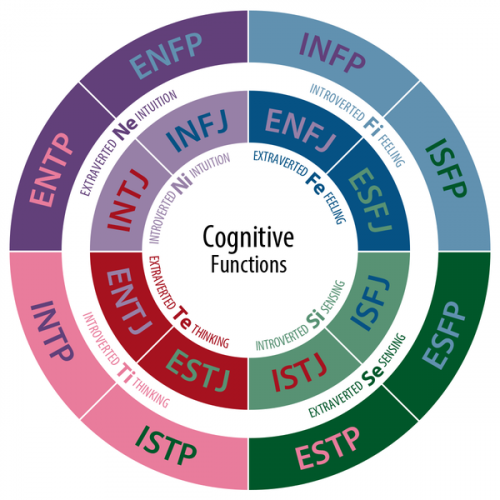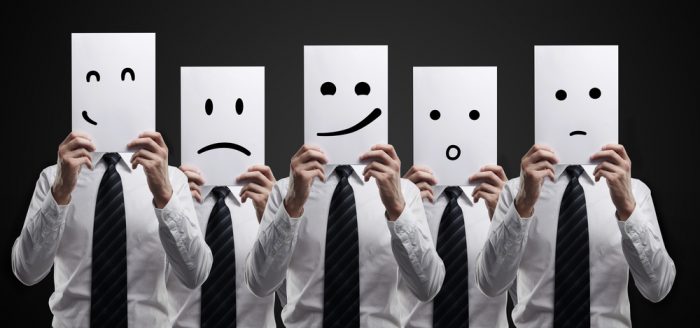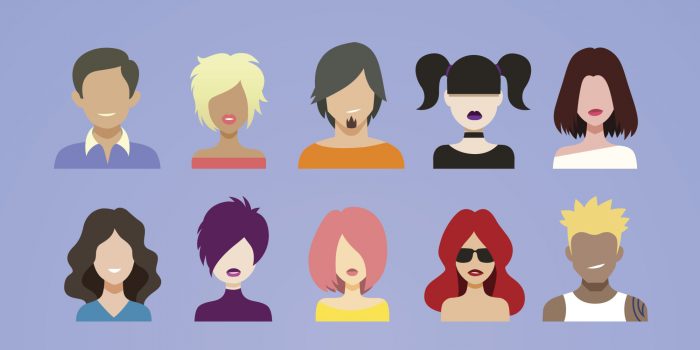I had always been interested in knowing more about my personality type. I was among those who loved taking free personality type tests during my vacant hours, even though I wasn’t sure if they were accurate most of the time.
Then, when I signed up for a dating app (don’t judge me!), I realized that many of the guys wrote acronyms like ISJF, INTJ-A, ENTJ-T, and ESFJ-T, among others, on their profiles. I initially assumed that it was some football thing, considering some of them used football emoji too. At the time, I didn’t know they were Myers Briggs type indicator and personality types. However, I came across a profile where the guy added a link to a 16 Personality types website, where he took a personality type test.
Upon clicking the link, it became apparent that the test was based on the Myers-Briggs Type Indicator (MBTI). I faintly remembered my psychology professor touching the subject when I was in college, but I probably had my earphones on at the time, hardly paying attention to the class. If I had known that a free personality profiling or personality traits test was dedicated to it back then – and that it might be among the most accurate personality type tests out there – I would have listened to the professor more.

Taking The 16 Personality Types Test
Figuring out how to get started on the Myers Briggs type indicator was a piece of cake. As mentioned above, it has a free version, and I didn’t even need to register to the website. A few questions later, I got ISFJ-A. This ISFJ personality type is the Defender personality.
Before reading the results from the Myers Briggs type indicator, I already thought that it sounded cool. I had no expectations while taking the personality type test; I merely answered the Myers Briggs as honestly as possible. When I scrolled down and saw which types of famous people had the same ISFJ personality type (e.g., famous ISFJs Queen Elizabeth II, Dutchess Kate Middleton, Beyonce, etc.), I felt more excited to see how spot-on the introverted sensing Briggs type test was.
The Results – I Have Defender Personality
From what I understood, having the Defender personality meant that I had ISFJ personality traits. I was introverted (I), observant (S), feeling (F), and judging (J). The letter A, meanwhile, stood for altruism. Overall, it meant that ISFJs tend to use introversion to observe surroundings and express emotions to certain situations without hurting anyone’s feelings. ISFJs tend to avoid as many people as possible and prefer consistent environments, but would go all out to make social and personal relationships work and thrive.
Not to be confused with introverted thinking, ISFJs tend to feel and prioritize relationships. ISFJ personality types are also dominant introverted sensing, meaning sensing is a dominant function or primary aspect for the ISFJ personality type, prioritizing others over their own needs and own emotions.
Loyal ISFJs are extremely caring (sometimes at the cost of their own needs and own desires) and supportive. ISFJs celebrate others and don’t focus on own accomplishments, especially in relationships. ISFJs are also well aware of the body language and cognitive functions of other people.

I thought that was pretty accurate. Ever since I was a kid, I never liked big crowds. I loved standing a few feet from them and observing what others were doing. However, it did not entail that I was insensitive to others’ feelings or could not socialize whenever I wanted. It’s just that I cared to be around my closest friends and family members more than mingling with new people.
What Does The Mental Health Of Someone With Defender Personality Look Like?
Less Likelihood Of Having Anger Management Mental Health Problem With Defender Personality
ISFJ personality types are known for having extremely long patience. I can attest to this as my friends often comment about how they have never seen me get mad. Though I may get upset sometimes, it is quicker for me to get over an issue than all of them combined.
In hindsight, I find that it’s a positive point, considering it reduces my likelihood of getting diagnosed with an anger management problem. It might take a long while before a scenario makes me see red. But even then, I might probably catch myself and try to think that things are happening for a reason (which I always do).

Positive Thinker With Defender Personality
Having a Defender personality does not mean that life cannot be filled with unfortunate situations, and addressing the mental health of Defender personality is essential in such cases. In truth, I already experienced flunking a class, getting cheated on by the love of my life, being backstabbed by one of my so-called friends, etc. Despite all that, I managed to get back on my feet and move on.
How did I do that, you might ask? Well, there is nothing that optimism (another one of the known common personality traits of Defenders) couldn’t do. Though I might cry about a scenario for a day or two, I always wiped my tears away and smiled and thought, “Hmm, what better things are in store for me?”

Has Perfectionist Tendencies With Defender Personality
Furthermore, ISFJs have perfectionist tendencies. I couldn’t tell if it’s a pro or a con, considering my perfectionism has often served me well. All my projects were done flawlessly, to the extent that the professors wondered if I got a professional to make them for me.
Still, I could understand if some people saw my cognitive functions and perfectionism as a flaw. After all, whenever we had group projects, I always asked my teammates to redo their work if it didn’t look perfect in my eyes.

Final Thoughts On My Defender Personality
The 16 Personalities test undoubtedly enlightened me about what to call my personality. I had always been aware of my ISFJ personality type, but it was delightful to realize that I fit a category. That’s something that I never thought would happen since I was introverted yet sociable, practical yet optimistic, and patient yet firm. My cognitive functions and personality traits relate to introverted thinking and extraverted feeling at the same time.
Try taking the MBTI personality test now too!
FAQs
What Are The Negatives Of Defender Personality For My Mental Health?
What Personality Type Is Best For A Defender Personality?
What Mental Health Coping Mechanisms Do ISFJs Use?
What Are The Workplace Habits For Defender Personality?
What Is The Greatest Fear Of ISFJ?
Do ISFJs Avoid Conflict For Their Mental Health?
How common is the defender personality?
Which personality type is most trustable?
How does ISFJ act when stressed?
Are ISFJ easily stressed?
Are ISFJ prone to anxiety?
What is assertive defender?
What is a defender archetype?
Do ISFJ get emotional easily?
How do you communicate with an ISFJ?




